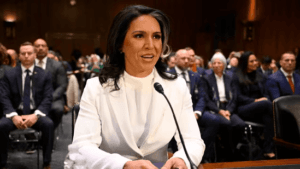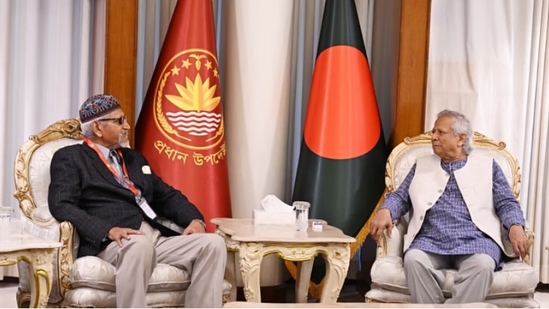In a landmark announcement on February 5, 2025, Saudi Arabia has reiterated its firm position against establishing diplomatic relations with Israel without a resolution to the Palestinian statehood issue. The kingdom’s unequivocal statement is not only a rejection of past proposals but also a powerful declaration that could reshape the course of Middle Eastern diplomacy. Is this the turning point in the region’s political trajectory?
The statement came swiftly in response to former U.S. President Donald Trump’s latest plan, which suggested the U.S. would take control of Gaza and facilitate the relocation of Palestinians to other regions. Saudi Arabia, a prominent figure in the Arab world, has long been an advocate for Palestinian rights. In this high-stakes diplomatic moment, the kingdom’s response to the Trump proposal has grabbed the attention of international leaders and diplomats alike. With its powerful message, Saudi Arabia aims to bring renewed focus to the Palestinian cause while reasserting its position as a key player in the region.
This article takes a deep dive into the significant implications of Saudi Arabia’s stance, highlighting the five most powerful reasons why this move could signal a profound shift in Middle Eastern geopolitics. It also explores the potential long-term effects of this declaration on the balance of power, peace efforts, and international relations in the region.
1. A Strong Stand for Palestinian Statehood
The first and most important reason behind Saudi Arabia’s position is the kingdom’s unwavering support for Palestinian statehood. The Saudi government has consistently stressed that peace and stability in the Middle East can only be achieved if Palestinians are granted their own state with East Jerusalem as its capital. In fact, Saudi Arabia has long been one of the strongest advocates for the Arab Peace Initiative, which was proposed in 2002 by then-Crown Prince Abdullah. The initiative offered normalization of relations between Israel and Arab nations in exchange for Israel’s withdrawal from Palestinian territories occupied since 1967 and the establishment of a Palestinian state.
Saudi Arabia’s rejection of Trump’s proposal reflects this historical commitment to Palestinian sovereignty. The kingdom has made it clear that any agreement to normalize ties with Israel will only occur if Israel recognizes and respects Palestinian rights, including the right to self-determination. This is a powerful message to both Israel and the international community: Saudi Arabia will not compromise on this critical issue, and Palestinian statehood remains non-negotiable.
This strong stance comes at a time when many Arab nations are beginning to reconsider their relationships with Israel. Over the past few years, the UAE, Bahrain, Sudan, and Morocco have all normalized relations with Israel under the Abraham Accords, a peace initiative spearheaded by the Trump administration. However, Saudi Arabia has refrained from such normalization, emphasizing that progress on Palestinian statehood must precede any such agreement. This consistency in Saudi foreign policy makes it clear that the kingdom will not follow in the footsteps of these other Arab nations unless the Palestinian issue is addressed.
2. Saudi Arabia’s Influence on Regional Stability
Another powerful reason behind Saudi Arabia’s stance is its influential role in regional stability. As the largest and most influential country in the Gulf Cooperation Council (GCC), Saudi Arabia has a considerable impact on the political dynamics of the Middle East. Its position on key issues like the Israeli-Palestinian conflict, the war in Yemen, and the Iranian nuclear threat holds significant weight.
In recent years, Saudi Arabia has increasingly positioned itself as a leader of the Arab world, and its influence extends far beyond its borders. Riyadh’s economic and military power, combined with its leadership in the Islamic world as the custodian of the two holiest sites in Islam, gives it an unparalleled ability to shape the region’s diplomatic agenda. The kingdom’s decision to reject Trump’s plan sends a clear message to the rest of the Arab world that Saudi Arabia is prepared to take a stand, even if it means opposing the policies of its closest ally, the United States.
Saudi Arabia’s influence also extends to other Muslim-majority countries, many of which have looked to the kingdom for guidance on matters of Islamic solidarity. The kingdom’s position on Palestine resonates with the broader Muslim world, where the Palestinian cause is viewed as a unifying issue. Saudi Arabia’s leadership in the Organization of Islamic Cooperation (OIC) ensures that its stance on Palestine is not just a national policy but a regional and global one that impacts millions of people.
Furthermore, by firmly opposing the idea of normalizing ties with Israel before the Palestinian issue is resolved, Saudi Arabia is attempting to stabilize the Middle East by addressing one of its most contentious and long-standing conflicts. The kingdom believes that any normalization between Israel and Arab countries without a just solution to the Palestinian issue would only exacerbate tensions in the region.
3. Saudi Arabia’s Domestic and International Image
Saudi Arabia’s stance on Israel is also closely tied to its domestic and international image. On the home front, the Saudi government must balance its relationships with both its citizens and the broader Muslim community. The Palestinian cause has been a central element of Saudi Arabia’s foreign policy for decades, and any deviation from this position could cause significant backlash from the public.
Palestinians enjoy significant support among Saudi citizens, many of whom view the Palestinian struggle as a matter of Islamic solidarity and human rights. Any attempt to normalize relations with Israel without ensuring Palestinian statehood would likely lead to widespread protests and dissatisfaction among the Saudi populace. By maintaining its commitment to Palestinian statehood, Saudi Arabia ensures it does not alienate its citizens or lose domestic legitimacy.
Internationally, Saudi Arabia’s position also plays a key role in shaping its relationships with other countries. The kingdom’s refusal to compromise on Palestinian rights aligns it with other countries and organizations that support the Palestinian cause, including Iran, Turkey, and several European nations. It also strengthens Saudi Arabia’s standing in international diplomatic circles as a champion of human rights and regional stability.
Saudi Arabia’s strong stance on Palestine is particularly significant as the kingdom works to diversify its economy through the Vision 2030 initiative. While Vision 2030 focuses on economic reform and the development of non-oil industries, Saudi Arabia’s foreign policy remains deeply intertwined with its image in the Muslim world. As the world’s leading oil exporter and a key player in OPEC, Saudi Arabia’s foreign policy decisions are closely watched by both regional and global powers.
4. A Warning to the U.S. and Israel
By rejecting Trump’s proposal, Saudi Arabia is also sending a stern warning to the U.S. and Israel. Trump’s plan, which proposes U.S. control over Gaza and the resettlement of Palestinians, is seen by many as an attempt to sidestep the core issues of the Israeli-Palestinian conflict. The proposal has been widely criticized for its failure to address Palestinian aspirations for self-determination and its potential to displace hundreds of thousands of Palestinians.
Saudi Arabia’s rejection of this plan makes it clear that the kingdom will not support any initiative that undermines Palestinian rights. The kingdom’s diplomatic leverage allows it to exert pressure on the U.S. and Israel, particularly in light of Saudi Arabia’s close relationship with Washington and its role as a key partner in countering regional threats like Iran.
The rejection also demonstrates Saudi Arabia’s desire to assert its independence from U.S. influence in the region. While the U.S. has long been a strategic ally of Saudi Arabia, the kingdom has made it clear that it will not blindly follow American policies, especially when it comes to such a sensitive issue as the Palestinian cause. Saudi Arabia’s independence in foreign policy is becoming increasingly evident as the kingdom seeks to define its own path in a rapidly changing geopolitical landscape.
5. The Future of Middle Eastern Diplomacy: A Tipping Point?
Finally, Saudi Arabia’s rejection of the U.S. plan signals a potential turning point in Middle Eastern diplomacy. The Middle East has been a region in flux for decades, with shifting alliances, ongoing conflicts, and evolving power dynamics. Saudi Arabia’s firm stance on Palestine sends a message to the international community that the region is not going to follow a predetermined course dictated by external powers.
As the kingdom asserts its position, the future of the Israeli-Palestinian conflict could take a new direction. Saudi Arabia’s refusal to normalize ties with Israel without a Palestinian state could inspire other Arab nations to take a similar stance. Alternatively, it could lead to new diplomatic initiatives aimed at finding a lasting solution to the conflict.
In either case, Saudi Arabia’s decision to stand firm on Palestinian statehood marks a critical juncture in the broader context of Middle Eastern diplomacy. The kingdom’s influence will continue to shape the future of the region, and its position on Palestine will remain a central issue in the pursuit of peace and stability.
Conclusion
Saudi Arabia’s declaration that it will not establish ties with Israel without the creation of a Palestinian state is a powerful move that will reverberate throughout the Middle East and beyond. This firm stance underscores the kingdom’s commitment to Palestinian rights, its influential role in regional stability, and its desire to maintain both domestic and international legitimacy. As Saudi Arabia continues to assert its independence on the world stage, the future of Middle Eastern diplomacy will undoubtedly be shaped by its actions, and the Palestinian cause will remain a central issue in the region’s political landscape.
In the end, Saudi Arabia’s rejection of Trump’s proposal is not just a political move; it is a statement of principle. By standing up for Palestinian statehood, Saudi Arabia has reaffirmed its position as a key player in the Middle East and a powerful force in global diplomacy.
Also Read-
1. U.S. Military Plane Deporting 205 Indians Lands in Punjab: Key Takeaways



















